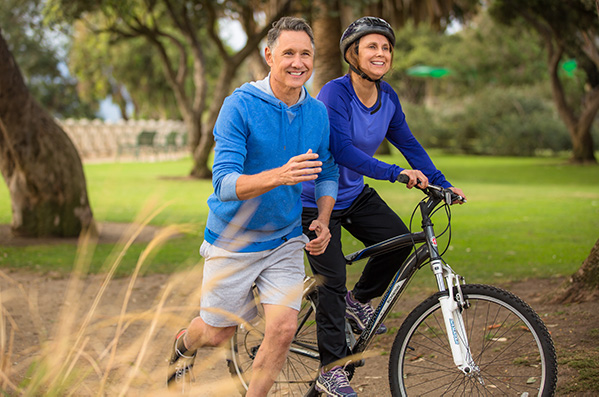Your First Step
1. Your first step in determining if a dental appliance is a good fit for your obstructive sleep Apnoea treatment is to have a medical sleep specialist determine the severity of your sleep Apnoea. For this step you will need a referral from your GP.
2. The next step is to bring your sleep study to an appointment with Dr Bond to fit you with an oral device.
If you don’t have a sleep study but believe you are having issues with sleep Apnoea, Dr Bond can pre-assess you to determine if a sleep study may be required in your individual case, referring you to a medical sleep specialist if necessary to begin the progression towards alleviating your sleep issues.
Dental Treatment Options for Sleep Apnoea
Dr Emma Bond, at The Centre for the Treatment of Sleep Apnoea, after consultation with your Medical sleep doctor, can offer you an effective, evidence based alternative to CPAP machine, as recommended individually.
In the past, a device called a continuous positive airway pressure (CPAP) machine may have been your only option, however some patients are suitable for an oral appliance as an effective alternative to CPAP.
This custom-fitted dental device is developed for the treatment of snoring and obstructive sleep apnoea. It is an effective, comfortable, and durable alternative to CPAP therapy or corrective surgery.
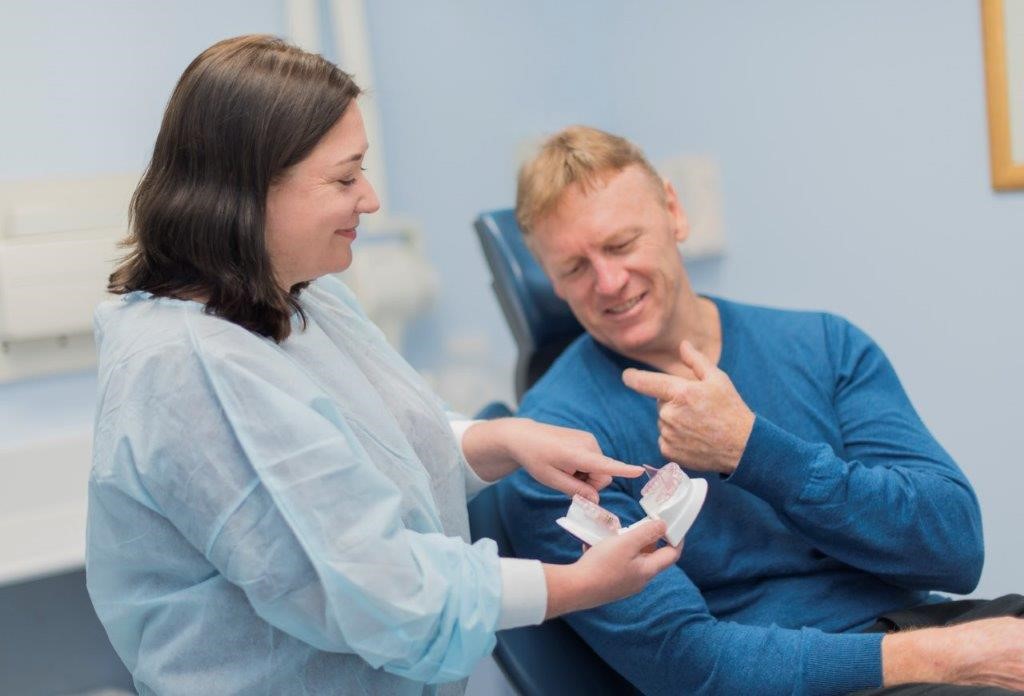
Typically, it can be patients with simple snoring issues. It is also effective for those diagnosed as having mild to moderate sleep apnoea.
If you have a severe apnoea diagnosis but cannot tolerate CPAP you could also trial a dental appliance first.
It works by simply wearing the custom appliance while sleeping. Your custom-made device will fit comfortably over your teeth. It works by moving the lower jaw slightly forward. This forward movement helps to keep your airway open.
CPAP patients often use an oral device as an effective solution while travelling.
The following possible side effects are usually minor and last only a few days:
- Discomfort around the teeth or jaw
- Dry mouth
- Excessive salivation
- irritation to the soft tissues of the mouth
- Discomfort of the jaw joint
- irregularities or changes to the bite (occlusion)
Dental Appliances – which one is best choice for you?
Different Appliances – Which one ?
There are several types of custom appliances on the market. Customised devices can help provide effective management of sleep apnoea. After Dr Bond has chosen the most suitable device for you (based on your individual case and extensive research), she will work closely with the Lab and you to achieve the best result for you.
Examples of excellent custom fitted appliances that Dr Bond is experienced in providing include the range from Somnodent and Oventus appliances.
Somnodent®

SomnoDent AVANT®
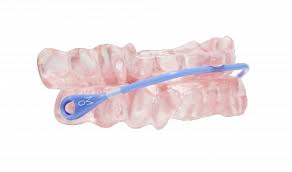
Oventus O2Vent®
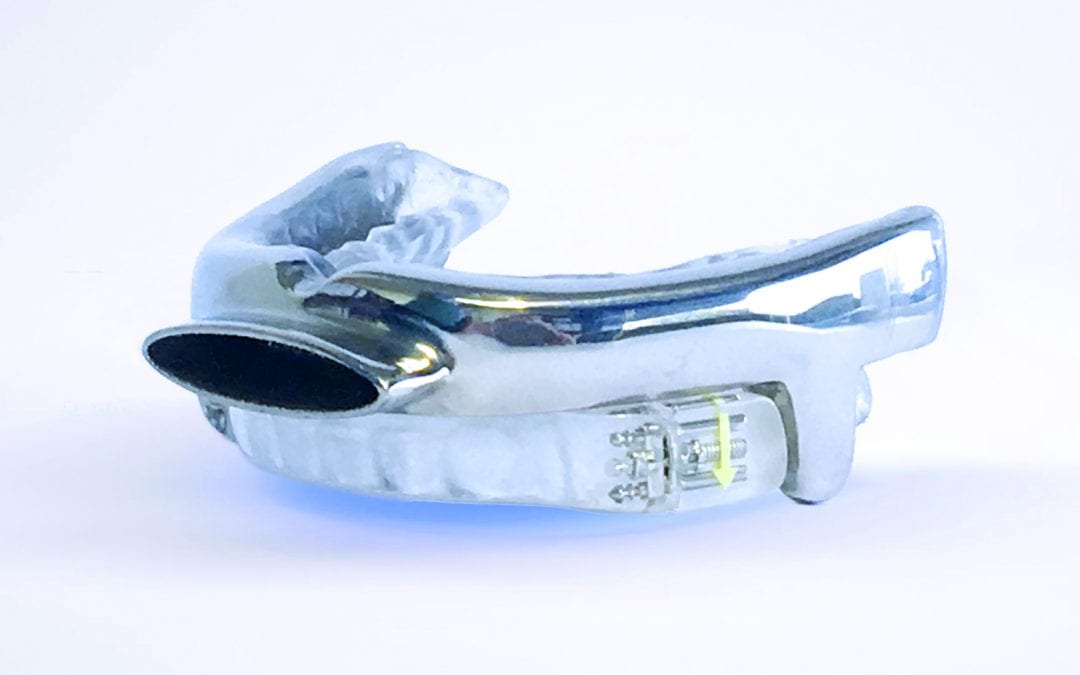
Oventus O2Vent®Optima
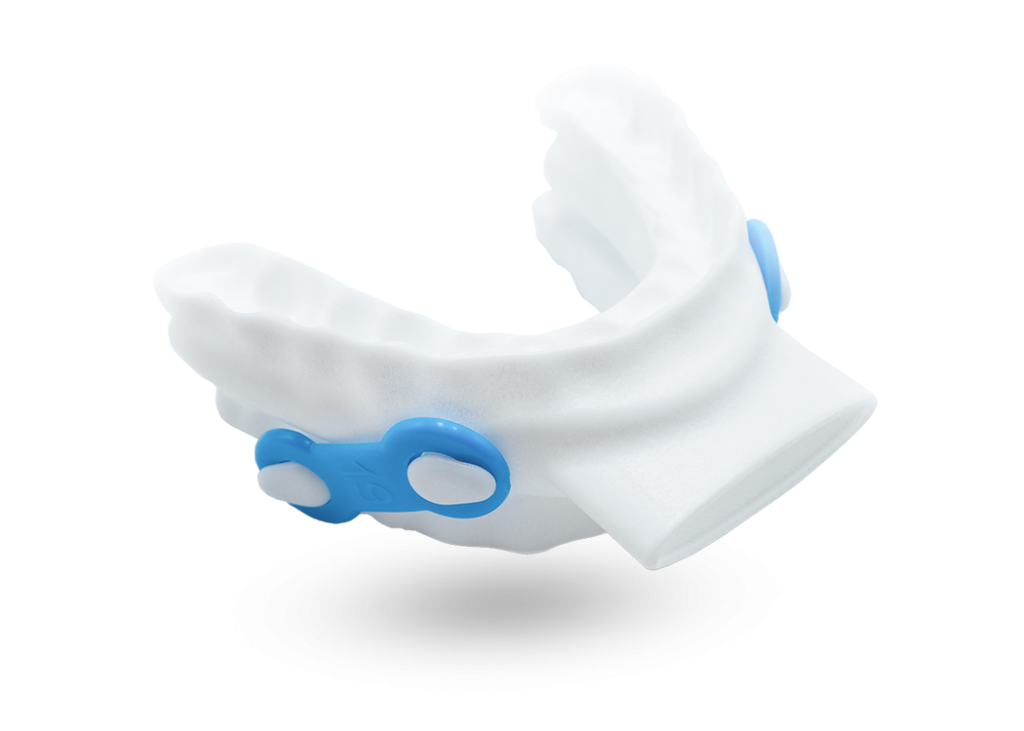
There are several types of custom appliances available to patients. Customised devices can help provide effective management of sleep apnoea. As part of Dr Bond’s assessment, she will choose the most suitable device for you. This is based on your individual case and she will work closely with the Lab, and you, to achieve the best result for you.
The custom fitted appliances that Dr Bond most commonly provides are those designed and manufactured by Somnodent and Oventus.
An example of a custom appliance is an oral appliance called Somnodent®, a mandibular advancement splint. This devise holds the lower jaw in a forward position. It prevents the tongue and the soft tissue in the mouth from falling back and blocking the airway while you sleep.
The Oventus O2Vent® -Traditionally sleep apnoea patients identified with nasal obstruction have not been considered to be a good candidate for oral appliances and are typically prescribed CPAP. If an oral device were prescribed, you would find it difficult to tolerate because both the nose and mouth would have a limited capacity to breathe. The O2Vent® airway channel combats nasal obstruction to enable unobstructed air to flow through the device to the back of the throat, bypassing common sites of obstruction such as the nose, tongue and soft palate.
How do they work?
The treatment of snoring or obstructive sleep apnoea with an oral appliance is safe, painless and effective. Your custom-made device will fit comfortably over your teeth. Dr Bond has expertise in the types of oral appliances that will suit your needs. Emma maximises the fit and comfort of your device by taking a 3D scan of your teeth. A bite is also recorded.
The digital models are constructed by the laboratory and they will will custom make your device. Dr Bond will then show you how to use it and care for it.
Worn during sleep, they help to keep the airway open by:
-Bringing the jaw forward, or
-Lifting up the soft palate, or
-Holding the tongue forward.
Some appliances use a combination of these three methods.
Benefits of Oral Devices for Sleep Apnoea
Convenient
As the appliances are small and light, they are easy to carry during travel, making it the perfect travel companion. Unlike CPAP, you don’t need access to a power outlet. You can easily fit it in your hand luggage.
If an oral appliance is cleaned and stored correctly it should last for years.
Comfortable
The appliances are easy to wear. It is often possible to speak, yawn or drink while wearing an oral appliance.
You won’t have to remove it to get up during the night!
Effective
Of every 100 snorers, about 95 will have a decrease in the noise levels they make during sleep.
Of every 100 people with mild to moderate obstructive sleep apnoea, about 80 will have
either good or excellent results while using an appliance.
Dental Appliances – which one is best choice for you?
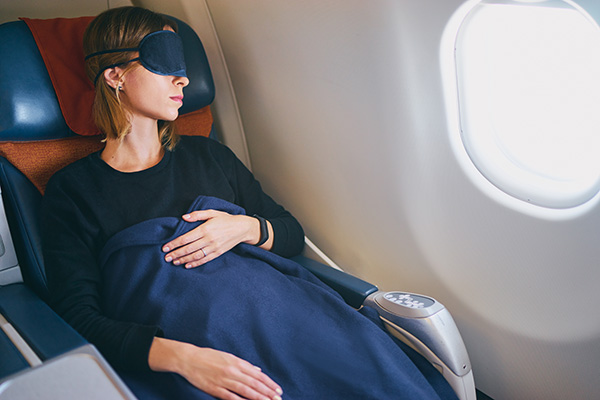
What happens at my appointments?
1st Appointment
Dr Bond will assess your dental condition and take an OPG (Orthopantomogram). This is an x-ray that gives a panoramic view of your jaw.
In most cases, you will bring along your sleep study (completed by a medical sleep specialist). If you don’t have this done yet but are concerned that you may have sleep apnoea, don’t worry, Dr Bond can still discuss and pre-assess your symptoms. If appropriate, she will organise a referral to a sleep specialist for further diagnosis.
After a thorough examination and analysis of your apnoea issues she will determine which appliance is most suitable for your individual case.
2nd Appointment
Dr Bond will take a 3D scan of your teeth using the Trios a 3D digital scanner, creating a high-quality digital impression. Gone are the messy impressions. Dr Bond will also record a custom bite (Your bite is the way your upper and lower teeth fit together.)
Your scan is then emailed to the appropriate laboratory where they will custom make your device that has been designed for you by Dr Bond.
Bite registration tool
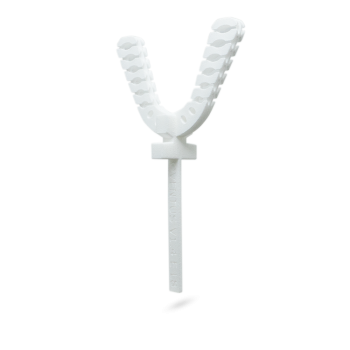
TRIOS 3D digital scanner
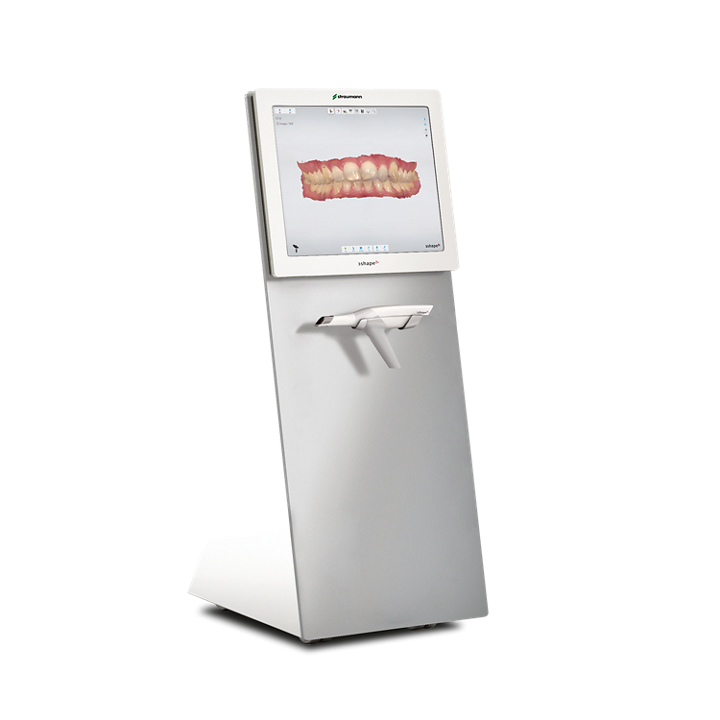
Next……
Dr Bond will issue your custom-made appliance, checking the fit and comfort, then show you how to use the appliance and care for it.
Dr Bond will also schedule a review one month after the initial issue of your device to assess its effectiveness and make any necessary adjustments.
The next review appointment is at 6 months, 12 months, 18 months and then at two years, and then annually thereafter. The review appointments for the first two years are complimentary.
Even if your appliance is working well it is essential that you return for your review appointments to ensure that the devise is achieving its maximum effectiveness.
After the initial phase has been completed you will return to your Medical Sleep Specialist for assessment.
The most effective results occur when combined with suitable Lifestyle Changes
If you’ve been diagnosed with obstructive sleep apnoea, there are several lifestyle changes that can help:
For milder cases of obstructive sleep apnoea, your doctor may recommend the following lifestyle changes:
- Lose weight if you’re overweight.
- Exercise regularly.
- Drink alcohol moderately, if at all,and don’t drink several hours before bedtime.
- Quit smoking.
- Use a nasal decongestant or allergy medications.
- Don’t sleep on your back.
- Avoid taking sedative medications such as anti-anxiety drugs or sleeping pills.
If these measures don’t improve your sleep or if your apnoea is moderate to severe, then your doctor may recommend other treatments. Certain devices can help open a blocked airway. In other cases, surgery may be necessary.
